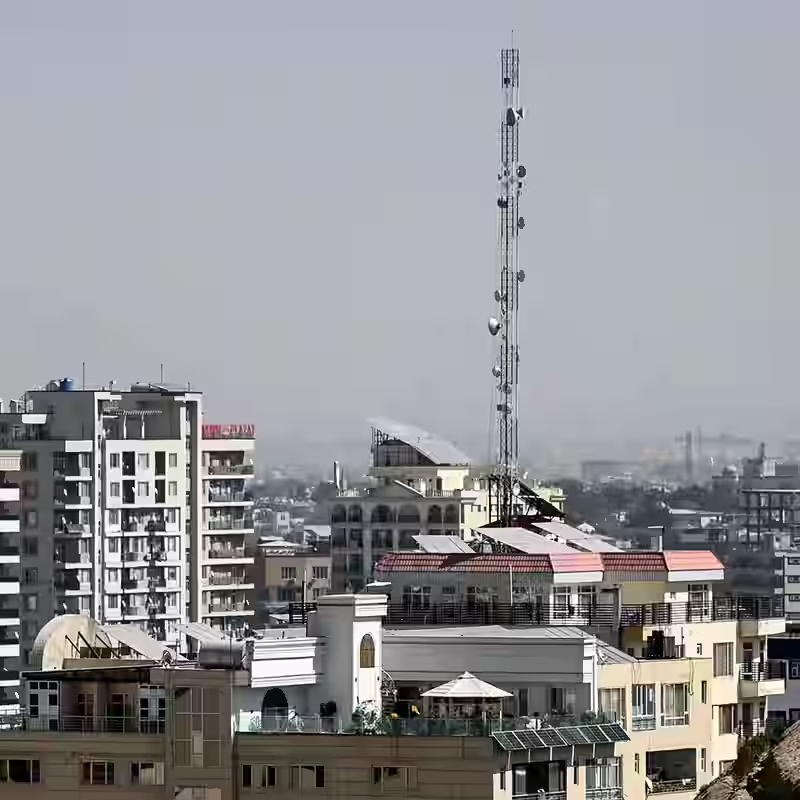Nationwide Internet Shutdown Enters Day 3 Under Taliban Rule
Afghanistan has been thrust into near-total digital isolation as a nationwide internet blackout—now in its third day—has crippled banking, grounded flights, and paralyzed humanitarian aid operations across the country.
The unprecedented outage, which began Monday evening, is among the most severe and sweeping internet shutdowns ever enacted by an authoritarian regime, according to global watchdogs like NetBlocks.

An antenna tower stands silent amid Afghanistan’s nationwide internet blackout. (Credit: NYT)
Why Did the Taliban Cut the Internet?
While the Taliban government has not issued an official statement, diplomatic sources say Supreme Leader Sheikh Haibatullah Akhundzada ordered the blackout to prevent the spread of “vice”—a vague justification often used to suppress dissent and control information.
“This isn’t just about morality—it’s about control,” said one regional analyst. [INTERNAL_LINK:Taliban Digital Policy]
Real-World Impact: A Nation Paralyzed
Without internet or mobile data, Afghanistan’s fragile systems have collapsed:
- Banking services halted: ATMs offline, digital transactions frozen.
- Flights grounded: No communication between airports or air traffic control.
- Aid distribution stopped: U.N. agencies can’t coordinate relief after August’s deadly earthquake.
- Women cut off: Female aid workers barred from U.N. compounds and unable to report emergencies.
Internet Shutdowns: How Afghanistan Compares Globally
| Country | Year | Duration | Scope | Stated Reason |
|---|---|---|---|---|
| Afghanistan | 2025 | 3+ days (ongoing) | Nationwide | “Prevent vice” |
| Syria | 2012 | ~3 days | Nearly nationwide | Suppress revolution |
| Iran | 2019 | ~1 week | Nationwide | Quell fuel protests |
| Myanmar | 2021 | Intermittent | Regional | Post-coup control |
Humanitarian Crisis Deepens
The blackout comes as Afghanistan grapples with multiple emergencies:
- A 6.0-magnitude earthquake in late August killed over 1,400 people in the east.
- More than 1 million Afghan refugees have returned from Iran, straining resources.
- U.N. staff in Kabul cannot contact colleagues in Jalalabad, Kandahar, or Herat—except via satellite phones inside secure compounds.
“Restoring telecommunications is not optional—it’s a lifeline,” said the U.N. Assistance Mission in Afghanistan in an urgent appeal.
What Comes Next?
With the Taliban stating the blackout will last “until further notice,” experts fear this could become a new normal—a digital siege reinforcing the regime’s isolationist agenda.
For millions of Afghans, the silence isn’t just digital—it’s existential.




